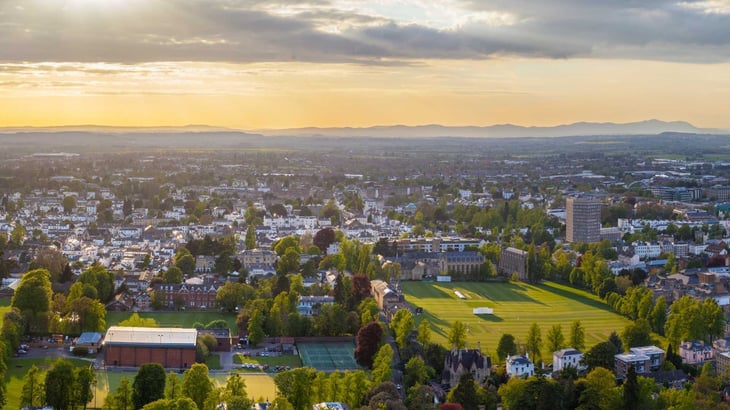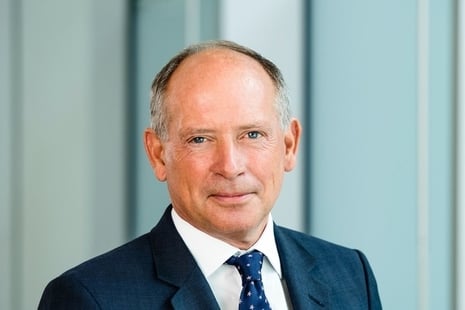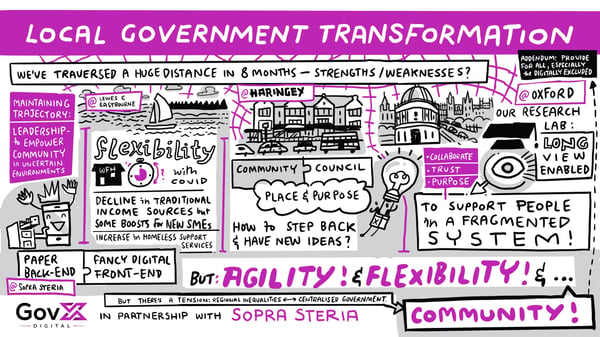Analysis: How the public sector can support COP26 sustainability goals

Ahead of the UN Climate Change Conference of the Parties (COP26) in Glasgow next week, GovX Digital’s GM for Government, David Wilde, explores how public sector agencies need to respond to the climate change agenda.
From a Government point of view, we've got some very big decisions to make as a country
In recent weeks, we’ve seen the tripling and quadrupling of gas prices - these are interesting times to be thinking about the challenges around fossil fuels and net-zero goals. How do we deal with life after fossil fuels and pursue sustainable energy that delivers against the way that we're going to live, work and play in the future?
In turn, what’s the challenge for government and the public sector? While COP26 is going on and we’re exploring energy issues, in the UK we also hear repeatedly about Levelling Up - what does it mean in this context? From a Government point of view, we've got some very big decisions to make as a country about how we're going to deliver sustainable energy to avoid a repeat of what's happened with gas. The ability for our public sector to challenge these issues reaches beyond the environment - sustainability plays into trust, democratic accountability and financial and digital sustainability.
Understanding social and economic context
How are we going to live and work in an environment that COVID-19 has just fundamentally transformed? Because it’s clear we aren’t going to go back. We work differently, we play differently, we learn differently, we shop differently. Throw into that the idea of digital transformation, which has been around for the last 10+ years, but has seen a 10-year boost in the past 18 months.
Instead of a gentle drift into the decay of traditional retail, we've seen it drop off a cliff. Going into COP26, we've got a completely different landscape around where we live and work, how we shop, how we're going to consume energy, where we're going to get it from, and what it's going to cost. This is all set against the Levelling Up agenda at the government level that says while all this is going on, with a downward trend, we're also going to help people make more money and the economy is going to grow.
Central Government policy challenges
That background makes for some challenging policy discussions. The first question has to be about energy. It's one thing saying we're going to deal with climate change, but we also have to recognise the rate at which we’re still consuming energy. It's not as easy as just switching one thing off, and then magically turning another source on. We've seen the consequences of the end of coal, and subsequent reliance on gas, while we spin up renewables, and the consequences of that happening in transition. How can we do that better and manage national infrastructure, so that we can smooth the process and manage it in a more efficient way?
Then how do we then double down on the more efficient renewable options, solar, heat pumps and all the rest of it in domestic energy?
Levelling Up: executing locally
How do we unlock Levelling Up at a local level? It's great for government to set the national-level ambitions. I absolutely applaud those aspirations around national economic opportunity, dealing with those areas most in need, being able to change direction and shift how they operate and create opportunities for people around the country. But this can only be done locally - there's too much diversity to do it at a national level. It's too complicated in our country to run a paintbrush across England, then hand over to Scotland, Wales and Northern Ireland, and tell them to make this happen.
Carbon reduction in action
So the challenge for us is taking COP26 at a global level, dealing with the national policy challenges, but then working out how to unlock the latent capability in local government and local public services to deploy those great ambitions.
Practically, what does that mean? It means redesigning our town centres. We've been talking about this for years and the death of retail as we know it presents a great opportunity to do it. Let's stop talking about it and get on with it. .jpg?width=250&name=Government%20and%20COP26%20climate%20change%20(2).jpg)
There are debates going on around whether 10-minute towns or 20-minute cities are good things. If they remove the need for so many people to use transport - one of the single biggest generators of carbon emissions - how can that be wrong?
So let's stop debating the merits of the detail and just accept that actually working and living in an ecosystem that enables people to walk and cycle more is a good thing. Electric vehicles and transportation that's carbon neutral to carbon negative - let’s get on with it.
Local government needs to stop just talking the talk about whether we collaborate through shared services and buildings
IT and digital have a massive opportunity to take carbon production out of the system through the ability to provide virtual access to information services for people in their own homes. Look at banking - imagine the carbon footprint saving there is now there are fewer bank branches in the country being heated, lit up, populated, built, and so on.
With local public services, let's do the same. Let's stop having separate buildings for separate agencies - move to collaboration, build on what's happened with COVID-19. Local government needs to stop just talking the talk about whether we collaborate through shared services and buildings - and just get on and do with it. Imagine one multifunctional environment in an area that people can easily get to inside a 15-minute town to do all their business with public services. Even better if it's alongside residential accommodation for those people that need that help and support, either through lifelong disability through ageing populations.
Data and analytics will also have a key role to play through Climate Impact Assessments, which I suspect will be the next big government move we'll see coming. As everyone declares climate emergencies, they’ll need to have an impact assessment to truly understand how it's affecting each area. So you can see local authorities all over the country creating climate impact assessments, and I suspect in parallel, because it's what we always do, Whitehall departments will do the same for their policy remit.
It’s clear that even before we know the outcomes of the COP26 conference, there are so many things that can be done around the climate change agenda, but it has to be global, national, and local agencies all working together to make that happen.
We're exploring the future of place-making with 60+ experts at the LocalGov Transformation Show. Click below to find out more.







